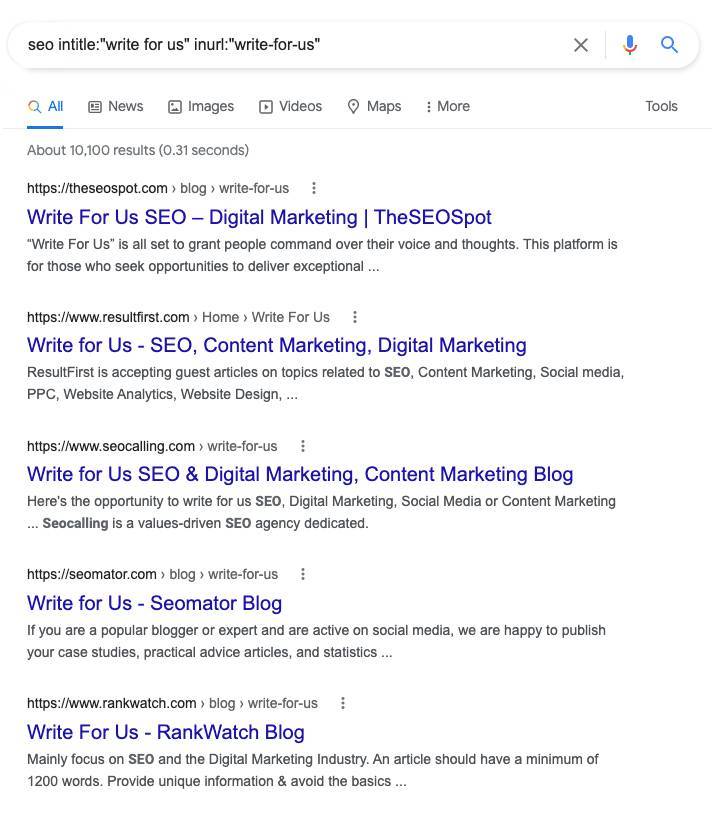Table of Contents
Link building is increasing the number of inbound links pointing to your website and has been a key ranking factor for years. Search engines are constantly adapting their algorithms to improve the quality of their rankings, but despite years of changes, link building always remains one of the most important.
Simply put, the number of high-quality links sending traffic to your own site helps you secure that coveted first-page result in the search engine rankings. But don’t think that simply getting any old backlink will do. This is Google we are talking about, and they have rules. Lots of them.
Below we break down the common link-building strategies – the good and the bad. Remember, like most SEO strategies, a link-building campaign is a long game, and the positive impact on traffic is not always instantly seen in rankings. Best practices and consistency are key.
Which Link Building Strategies Should You Try?
What Not To Do
Do Not Purchase Links
In the not-so-distant past, purchasing links was a common tactic to build links and drive search rankings. You could simply pay a company to link back to your site on 100, 1,000, or more sites across the internet. Easy enough, right?
Not anymore. All major search engines have made it clear that paying for links as a way to improve rankings is no longer allowed. In fact, Google has more than one type of penalty regarding questionable links on and to your site.
Do Not Borrow Links
Did you ever wonder why so many sites don’t allow comments on their pages or posts? A few years ago, it became common practice to leave blog comments with a link to their own website. And while it did count as a backlink at the time and essentially piggybacked off of the other site without their permission. These comments quickly became spam and were thrown on any, often irrelevant, sites. Google is smarter than that.
Do Not Swap Links
Speaking of Google being smart, Google algorithms can also detect if a site is trading links back and forth. If your site has links to other websites that link back to yours, it’s pretty obvious that a trade occurred, and it will negatively impact your rankings.
What To Do
Do Create Quality Content
This may be the most obvious tactic, but simply creating quality content that other websites want to link should be a top priority. Make your site the source for quality, thought-provoking content. Do your research and take the time to write blog posts and other content that is timely, relevant, and something someone wants to read and share. It is not easy, but quality content can transform your online presence, lead generation, and business.
Do Focus on Relevance
Link building is not just about the number of links pointing back to your website but more so the quality and relevance of those sites. Inbound links show search engines that your website is a trusted source in your industry or market. This can only be done if other relevant sites direct users to your site.
Think of it this way, 100 inbound links from poor ranking and unrelated websites give no indication to Google that your site is a trusted source of information for their searchers. However, 50 inbound links from relevant websites with strong domain authority show Google that your site deserves top placement in the rankings.
Do Share Via Social Media
Creating quality content is important, but how you share that content is equally important. Content distribution via social media is a great way to boost awareness and engagement among your followers and beyond.
The nature of social media encourages people to share, and if your followers are sharing your content with their followers, it boosts not only your visibility but also your link-building. It’s a win-win.
Do Guest Blogging
Sites are always looking for high-quality content, and writing a piece of content for another site is an opportunity to link back to your site. Pick a topic that you are knowledgeable about, relevant to your business, and find an opportunity to write a blog post for another site. This creates an opportunity to link back to your site and gets your brand in front of a new audience.
There are several options when it comes to finding guest blogging opportunities. A lot of sites actively and openly seek guest bloggers. It is now a common practice for many lists looking for guest writers to have a “write for us” page. Use a Google search operator to find those websites easily. You simply need to search:
your niche intitle:”write for us” inurl:”write-for-us”

The folks at Loganix assembled a resource page of 350+ sites that are always looking for guest bloggers.
Another way to find guest contributor opportunities is to simply ask a site owner that you frequent yourself. Oddly, you are already visiting relevant, quality sites that would be a natural fit for your content. Simply send them an email and make the offer.
Do Broken Link Building
Broken link-building is a common practice that can easily be added to your link-building strategy. All you have to do is find broken links on relevant sites and contact the webmaster to replace the broken link with one of yours.
Ideally, you already have a piece of content that would fit, but in some instances, you can write a new piece of content for that specific opportunity.
Do Reach Out and Ask
And lastly, simply ask. Is there a site that you frequently visit? Is there an existing post you’re reading that could use some supporting links? Don’t be afraid to email the site owners and suggest linking to a specific page on your site. If your content is quality and it’s a good fit, it will benefit both sites.
Always Track Your Backlinks
So you’ve invested time and money into your link-building campaign. Now what? Track your backlinks! There are numerous tools out there that track the number of sites linking to your site. They can also monitor if those sites are in good standing with Google (or are considered toxic) and their authority. You can also monitor Google Analytics and Search Console data to see what sites your referral traffic is coming from, the growth in organic traffic, and if your search engine rankings have improved.
Like everything with digital marketing, you are missing opportunities if you are not tracking your efforts.
Recap: Do Link Building the Right Way
Backlinks are essential in search engine rankings, and how you build those backlinks matters. Like most aspects of SEO, it takes months of consistent strategy to see results. Find a digital marketing and SEO services partner that is committed to getting results the right way.


